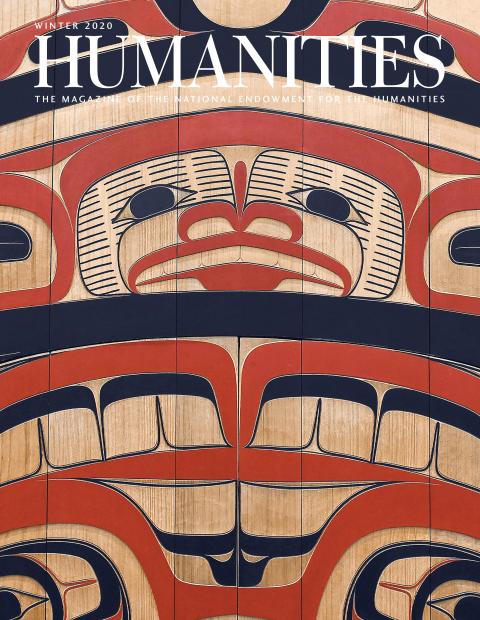Pen in hand, NEH Chairman Jon Parrish Peede traveled recently to Alaska. Senior Advisor Vincent Ricardel, a professional photographer, went along, his camera at the ready.
As much as the natural environment of glacial rivers, fog-shrouded wildlife, and the bracing sight of the Arctic landscape, the peoples of Alaska made a great impression on the visitors from Washington. NEH has long supported projects preserving and celebrating the native cultures of Alaska, but this was an opportunity to see the magnificence of the 49th state up close.
Native American stories are an essential part of the history Chairman Peede wants to be told with the help of “A More Perfect Union,” a major NEH initiative to help prepare Americans for the nation’s semiquincentennial in 2026. In a brief interview in this issue, the chairman discusses this initiative whose goal, he has said, is to help Americans “better understand the world’s oldest constitutional democracy and how our founding ideals are met in a modern, pluralistic society.”
Today, the American story features many peoples who were left out of earlier versions. Perry Miller was the author of one of those earlier versions. He found in a then obscure sermon delivered in 1630 aboard the Arbella by Puritan John Winthrop the description of America as “a city upon a hill.” Thanks to Miller’s efforts, it would be popularized into one of the most quoted and influential catchphrases of national politics. NEH Public Scholar Abram Van Engen tells the story of this discovery and Perry Miller’s influential career as a scholar.
On November 21, 2019, President Donald J. Trump awarded the National Humanities Medal to three individuals and one organization for their contributions to the humanities. Read about philanthropist Teresa Lozano Long, chef Patrick O’Connell, author James Patterson, and the Claremont Institute, a think tank, in this issue.
As we continue taking stock of the Nineteenth Amendment, one hundred years after congressional passage, it pays to consider the social history of women’s empowerment. The early years of feminism drew inspiration from some surprising quarters, including the Ottoman Empire, where veiled women for many years enjoyed property rights that lay far in the future for women in the West. Sara Catterall discusses how women’s trousers and other expressions of femininity passed from the harems of Constantinople to Seneca Falls, New York.
In the ancient world, information was recorded on cuneiform tablets. With NEH support, Susanne Paulus of the University of Chicago is working to develop noninvasive tools to help scholars and law enforcement determine provenance more quickly. Be sure to check it out.

